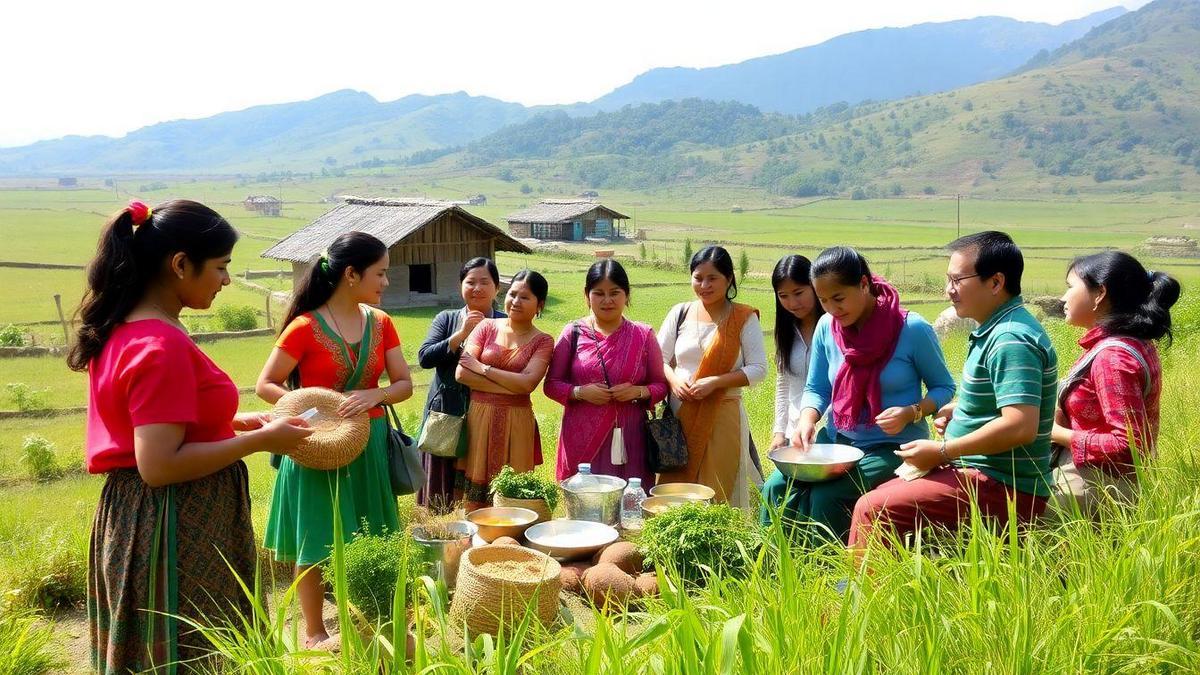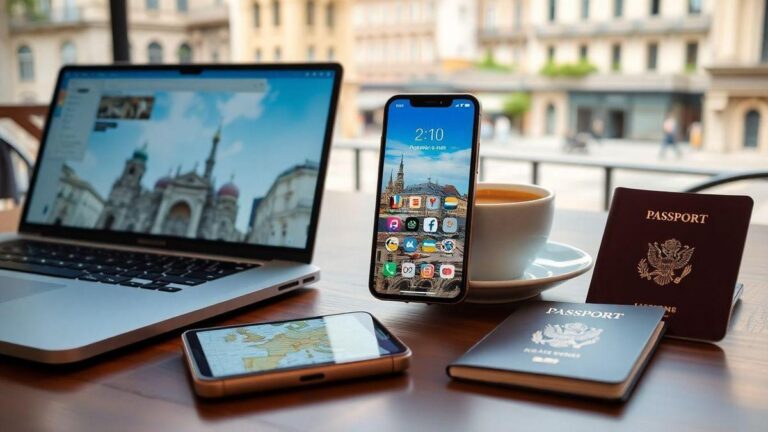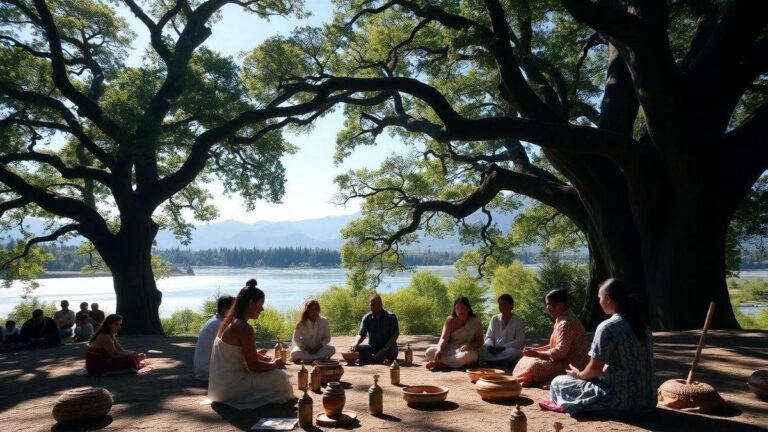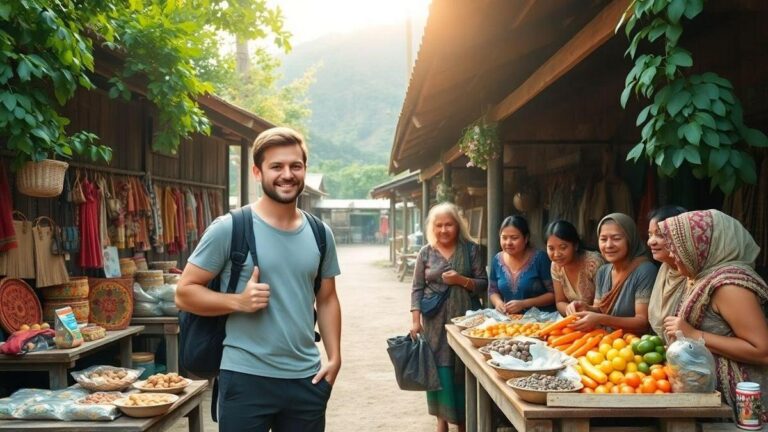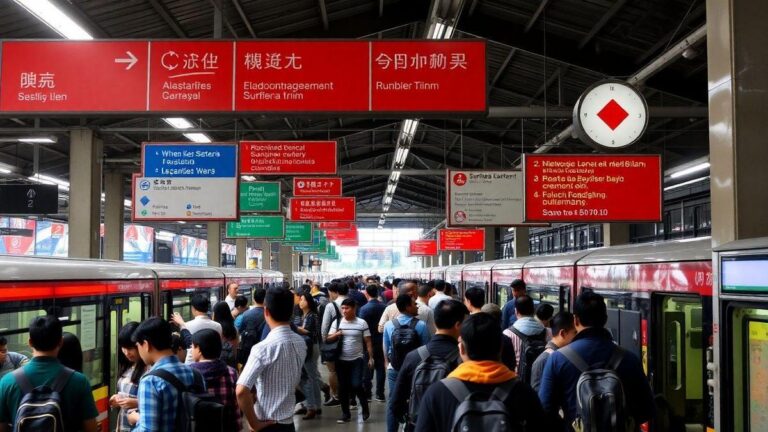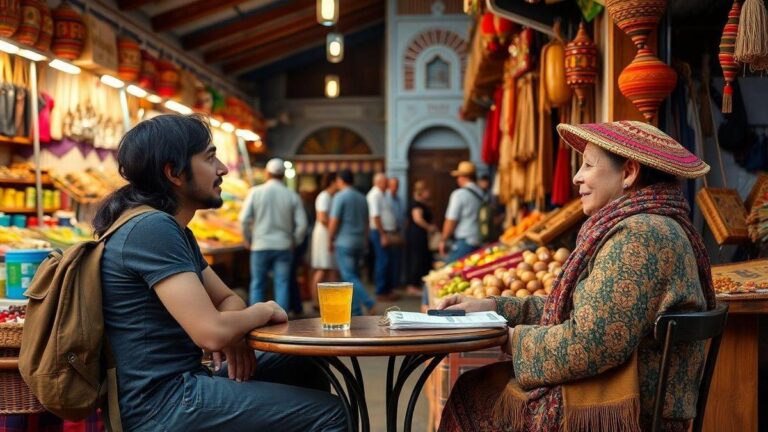Unique cultural experiences for language learners in remote areas
Unique cultural experiences for language learners in remote areas can open up a world of discovery and fun! Imagine getting to know local traditions, embracing community customs, and joining vibrant festivals. These activities not only make language learning exciting but also create lifelong friendships with locals. Engaging in authentic cultural exchanges can significantly boost your language skills. So, let’s dive into the joys of immersive learning and see how these moments can enhance your journey!
Important Points to Remember
- You can learn a language through cultural events.
- Exploring local foods helps connect with the community.
- Conversations with locals boost your speaking skills.
- Traditional stories teach you about the culture.
- Participating in festivals makes learning fun.
Discovering Local Traditions in Remote Areas
Engaging with Community Customs
When you step into a new place, dive into the local customs! Connecting with the people can turn your trip into a treasure trove of cultural experiences. You might find yourself learning a traditional dance or helping prepare a local dish. Imagine tasting a meal cooked with love while chatting with locals about their daily lives. This connection can make your adventure feel personal and warm.
Participating in Festivals and Celebrations
Festivals are colorful windows into the heart of a community. If you’re lucky enough to be in a remote area during a celebration, jump right in! Whether it’s a harvest festival or a local holiday, these events are packed with joy, music, and laughter. You’ll see vibrant costumes, taste delicious treats, and feel the rhythm of the celebrations. Here’s a quick look at how you can make the most of these experiences:
| Festival Type | What to Expect | How to Join In |
|---|---|---|
| Harvest Festivals | Traditional dances, local food | Participate in cooking or dancing |
| Cultural Celebrations | Music, art, and storytelling | Engage with locals and share your own stories |
| Religious Events | Rituals and processions | Respectfully observe and learn |
How Local Traditions Enhance Language Learning
Learning a new language can feel like climbing a mountain, but local traditions can make the journey easier and more enjoyable. When you engage with community customs, you pick up new words and phrases naturally. For example, while participating in a festival, you might hear locals using slang or idioms. This real-life practice can boost your confidence and help you speak more fluently.
Imagine this: You’re at a village gathering and hear someone shout, Let’s get this party started! You not only learn the phrase but also understand the excitement behind it. This kind of immersive experience is what makes learning a language in remote areas so special.
Experiential Learning Through Cultural Exchange
Language Practice in Real-Life Situations
When you travel, you step into a world where language becomes a living, breathing thing. Imagine ordering a meal in a bustling market, chatting with a vendor, or asking for directions. These moments are rich with opportunities to practice your language skills. You’re not just learning words; you’re using them in real-life situations.
If you’re learning Spanish, try visiting a local café in a Spanish-speaking country. You’ll find yourself ordering a coffee, asking about the pastries, and maybe even striking up a conversation with someone at the next table. This kind of immersion helps you remember phrases better and understand the rhythm of the language.
Building Friendships with Locals
Making friends with locals can be one of the most rewarding parts of your travels. These friendships often lead to deep cultural exchanges. You’ll share stories, laughter, and maybe even meals. These connections can help you see the world through someone else’s eyes.
For instance, let’s say you’re in a small village in Thailand. A local might invite you to a family dinner. While you enjoy delicious food, you can learn about their customs, traditions, and even some local slang. This not only enriches your experience but also builds lasting friendships.
The Impact of Cultural Exchange on Language Skills
Cultural exchange can have a huge impact on your language skills. Here’s how:
| Aspect | Impact on Language Skills |
|---|---|
| Practice | Real conversations help you think on your feet. |
| Context | You learn words in context, making them easier to remember. |
| Confidence | Making friends boosts your confidence to speak. |
| Nuances | Locals teach you slang and expressions that books don’t cover. |
When you engage with locals, you’re not just learning a language; you’re diving into a cultural tapestry that adds color to your understanding. The more you interact, the more you’ll find yourself picking up phrases and expressions that textbooks might miss.
Immersive Language Learning in Unique Environments
Benefits of Remote Learning Environments
When you think about learning a new language, have you ever considered doing it in remote locations? Imagine sitting by a beautiful beach, surrounded by nature, or in a cozy mountain cabin, all while picking up a new language. These remote learning environments offer a fresh take on language education.
Here are some benefits:
- Less Distraction: Fewer people and noise mean you can focus better.
- Cultural Immersion: You’re surrounded by the language and culture, making it easier to learn.
- Personal Growth: Stepping out of your comfort zone can boost your confidence.
Exploring Heritage and History
Learning a language is much more than grammar and vocabulary. It’s about connecting to heritage and history. When you immerse yourself in a new culture, you gain insights that textbooks can’t provide. For instance, visiting historical sites can help you understand the context of the language.
| Heritage Aspect | Language Connection |
|---|---|
| Traditional Festivals | Learn vocabulary related to celebrations |
| Historical Landmarks | Discover stories that shape the language |
| Local Cuisine | Understand food-related terms in context |
How Authentic Cultural Interactions Boost Language Proficiency
Have you ever tried chatting with locals in their own language? It’s one of the best ways to learn! Authentic cultural interactions can make a huge difference in your language skills.
- Real Conversations: You practice speaking in real-life situations.
- Immediate Feedback: Locals can correct you, helping you learn faster.
- Cultural Nuances: You pick up slang and expressions that books often miss.
By diving into unique cultural experiences for language learners in remote areas, you not only learn a language but also create memories that last a lifetime.
Frequently Asked Questions
What are unique cultural experiences for language learners in remote areas?
Unique cultural experiences for language learners in remote areas include hands-on activities like traditional cooking, local art workshops, or community festivals. These activities help you practice your language skills while enjoying the culture!
How can I find language learning programs in remote areas?
You can find programs online! Check language schools, travel websites, or social media groups. Local tourism offices might have information too.
Are remote areas safe for language learners?
Many remote areas are safe, but it’s important to do some research. Look up local safety tips and talk to others who have visited. Stay aware and trust your instincts!
What benefits do unique cultural experiences offer?
These experiences make learning fun! You get to speak with locals, learn customs, and taste delicious foods. This helps you remember words and phrases better and makes learning feel real!
Can I volunteer while learning a language in a remote area?
Absolutely! Volunteering can be a great way to immerse yourself in the language. You can help in schools, community projects, or eco-tourism. Plus, you’ll make new friends!

Hey, I’m Paula — traveler, language nerd, and the curious mind behind znewz.com. I’ve always believed that real connections happen through words, gestures, and shared experiences — not algorithms. That’s why I created this blog: to share travel stories from around the world and explore how language helps us connect in ways that AI still can’t. Whether I’m getting lost in a tiny town or striking up a chat in a language I barely know, I’m here to show that sometimes the best moments happen when tech takes a back seat.

